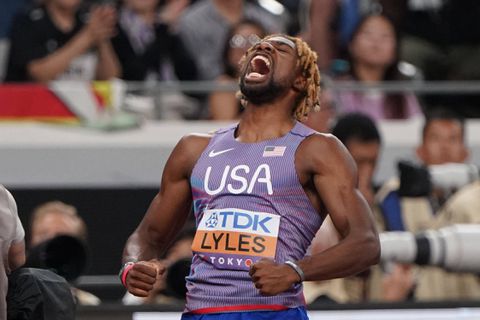Sprint king Noah Lyles is embracing both the triumphs of his career and the uncertainties of the sport he dominates. Fresh from his fourth successive 200m world title in Tokyo, he now has his eyes set on surpassing Usain Bolt’s record with a potential fifth crown in Beijing 2027. Beyond medals, however, Lyles is already sketching out how he wants his final years in sprinting to unfold.
The 28-year-old has confirmed that the Los Angeles 2028 Olympics will be his last Games, ruling out Brisbane 2032. His farewell tour is likely to include bucket-list meets in countries he has never raced in, a few competitions close to home, and one final race at his own track meet—an event where he hopes to celebrate his career on his own terms.
Lyles admits he is acutely aware of time passing. “I’m on the other half of the hill,” he has said of his advancing years. Yet, his commitment to maximizing every season and competition remains firm. This focus is crucial as a wave of younger sprinters emerges, including Jamaica’s Oblique Seville and Kishane Thompson, Botswana’s Letsile Tebogo, and Australia’s teenage prodigy Gout Gout.
While impressed by their talent, Lyles is cautious. He stresses that raw ability alone will not determine who rises to the top. “It’s about the path they take, the people around them, and learning early that this sport is also a business,” he explains. He believes young athletes must quickly adapt to the demands of fame, sponsorships, and professionalism, even if they are still in their teens.
Despite being one of the sport’s biggest personalities and marketing forces, Lyles is deeply concerned about the direction sprinting is heading. He describes the future of sprinting as “hazy,” noting that while there is an abundance of talent and charisma, the sport lacks a clear strategy to build global appeal. Initiatives such as Netflix’s Sprint and new competition formats have struggled to achieve the same mainstream impact as other sports.
For Lyles, authenticity is key. He urges athletes to embrace their personalities without fear of criticism. “It’s just a sport—let’s enjoy these moments as much as possible,” he says. His words reflect both optimism and realism: while sprinting’s future may be uncertain, its stars still have the power to inspire.

